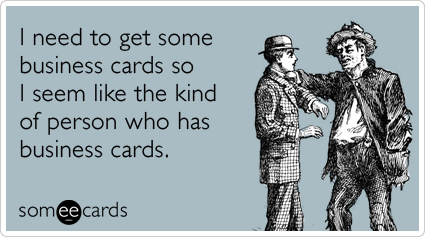Something that has long frustrated me about the professional services industry in particular is the thought that recruiting can be done in a silo, separate from delivery teams. Sure, it is nice to have headcount dedicated to this activity as it can be incredibly tedious and time-consuming, and really doesn’t fit into most typical delivery models as far as bringing in the front-line teams to assist with much of the burden of recruiting.
It is really frustrating, though, to talk to recruiters who have a bulleted list of skills that are tied to a given role, position, or opportunity. It is not a knock against the recruiter. I know that they will only have surface level information at best. But since their KPI’s are generally tied to ensuring those positions are filled (or a given budget/target is met for positions), they are likely going to severely embellish the opportunity and oversell the opening to the point where it seems like you’d be a fool not to jump on board with it. And that is a horrible waste of everyone’s time.
It is highly important to take everything that is said in the recruiting process with a bit of caution, and be sure to discuss roles and responsibilities for the position with people who are well-versed in the needs (i.e. the front-line delivery teams that are working on that project or similar ones). I have seen too many people jump ship from a great place just to find out that what they were sold for another position or company was way off base from what the expectations they had were. One of the people I trust most in the industry said it best when she said “After all these years, I can confirm the grass isn’t greener on the other side; it’s brown everywhere”. Now, before you indict this person and claim it’s blasphemy that green grass does exist, consider the fact that what they have effectively said is that there are pros and cons to every situation. If you leave one company for more money, sure you may get a great pay bump – but maybe you’ll be pigeon-holing yourself into a technology/project phase that you loathe (ever had a “Testing Manager” role that made you swear you never wanted to execute another test case in your life?). Or, perhaps you take the job at the sleek and sexy new startup with the local delivery model where you don’t have to travel. I’ve seen a lot of people who do this get really frustrated with their roles on projects becoming merely staff aug for large in-town clients where they feel as though they get stale or lose their focus on continued advancement of skills and knowledge.
Regardless, I think there are tons of opportunities to improve the recruiting process. And I think it all starts with putting the focus on the delivery teams. Nothing is more frustrating than talking to a recruiter who claims to have insight into “what it’s like” when you’re staffed on a “typical project”. No offense, but they 1) aren’t delivering projects, and 2) there is no such thing as a “typical project”. So please – in the absence of more robust recruiting – please be cautious about who you talk to when shopping for roles, projects, or companies. Do your own homework and talk to the right people. Only then will you start to get a good feel for whether you will enjoy yourself as you try to acclimate to the new spot.
Til Next Time,
Michael

